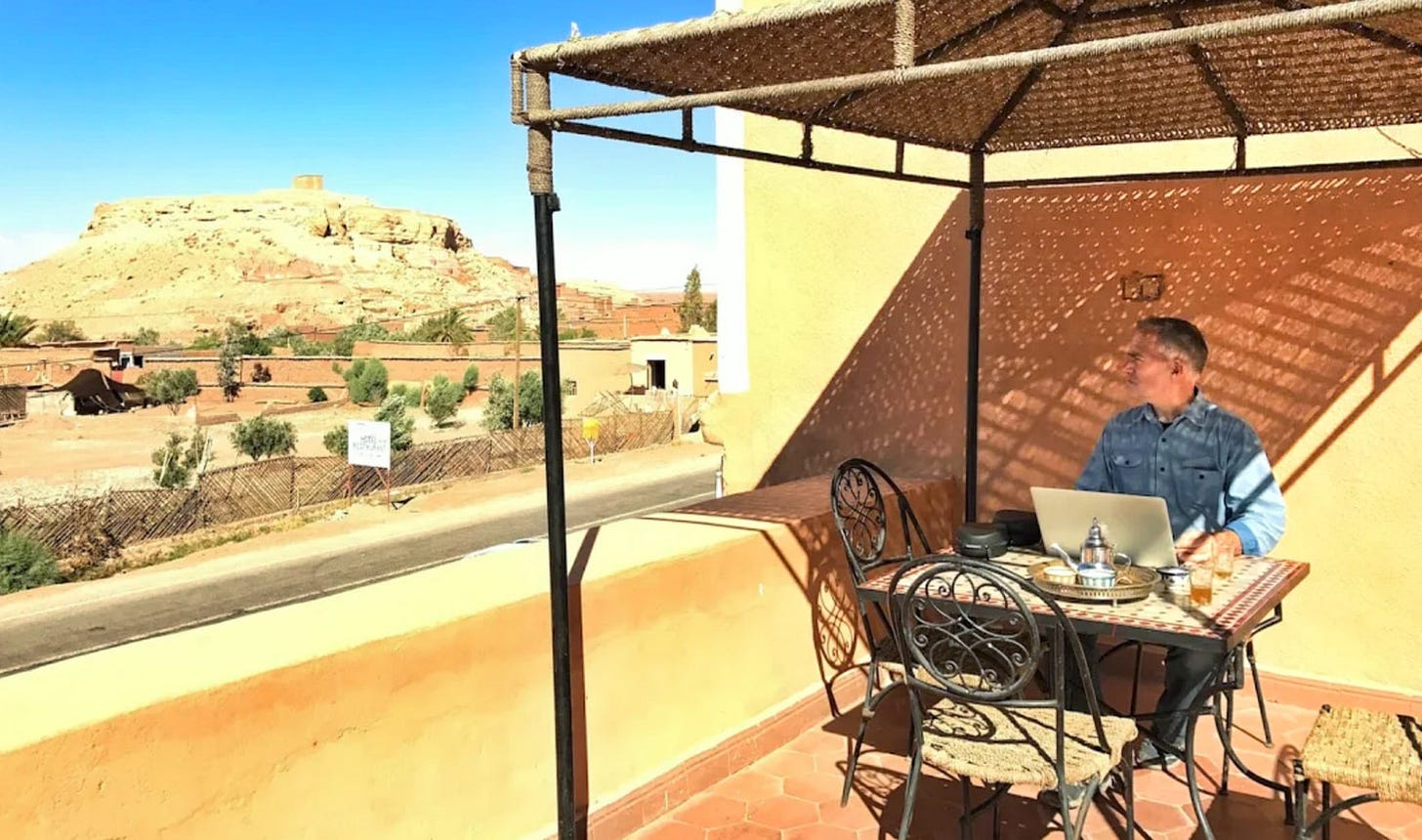Apple helped Putin steal an election for $155 million
Plus: floating cars, home dentistry and more!!
A small number of tech companies within a walkable radius in Silicon Valley have historically unprecedented power, reach and wealth. Apple and Google, for example, dominate the smartphone industry worldwide, yet their headquarters are separated by less than 10 miles.
They’re enormous because they’re global. Apple is a $2.4 trillion company only because it sells its products and services worldwide. Being global is the only way for the Silicon Valley giant companies to grow the way they have.
But what does it mean to be global?
To be a global company is really to be a local company in 200+ nations. To operate a business in a nation is to obey the laws, edicts and rules of that nation, even if your company is headquartered elsewhere.
That’s great in stable democracies with the rule of law like Denmark and Costa Rica, but not so great in single-party authoritarian regimes like Vietnam and Eritrea. When governments that suppress democracy and human rights insist that foreign companies help them in that project, then the company finds itself facing criticism back home.
Apple is in the crosshairs this week because of some dark collusion with Russian dictator Vladimir Putin.
Mike’s List of Brilliantly Bad Ideas
1. We were promised flying cars. How about floating cars?
A car-customization startup called Floating Motors intends to make boats that look like cars. Their process is that you pick your car make and model, then choose whether you want the wheels replaced by twin hulls or a foil rig. The company’s website shows boats made from the Mini Cooper, Volkswagen Van and a variety of sports cars.
2. Why visit a dentist when you can perform your own dentistry at home?
Dental hygienists use a tool called an ultrasonic scaler — basically a vibrating metal ice pick — to remove plaque. Now, a startup called Kepmov is making a home version. That’s right! Forget the training and experience of dental professionals and do your own dentistry. Their SUNUO is an ultrasonic scaler with a camera, so you can watch your teeth being chipped away at from the inside of your mouth. The scaler contains a 4-axis directional gyroscope, for some reason, as well as WiFi functionality so it can connect to the app. (Can’t wait for their home root canal kit.)
Mike’s List of Shameless Self Promotion
1. Why we don't need laptops or phones anymore
The tablet is a provocative beast.
Make a big one, and people argue over whether it could replace a laptop. Make a small one, and some users want it to be a giant phone. These conversations have repeated themselves since then-CEO Steve Jobs announced Apple’s ground-breaking iPad in 2010.
It was a pointless conversation at the time. Only the most dedicated tech nerds with specific kinds of work could even contemplate a stunt like replacing a phone or laptop with a tablet. Despite all the talk, few even attempted it.
Neither the world, nor the tablets, were ready — so the iPad and other tablets were relegated to lean-back, content-consumption device status.
But suddenly, the idea of actually using a tablet as a work laptop or a tablet as a work phone makes sense for some users, and is possible for most. This is especially true with either this year's 12.9-in. iPad Pro or the new 8.3-in. iPad Mini 6 unveiled this week.
Here’s why tablets can replace phones and tablets now.
2. Eight surprising ways remote work helps business
The rise of remote work is arguably the biggest change in how we work since the introduction of the networked PC. Yet so many unknowns remain.
When will pandemic-mandated remote work end? We don’t know.
What percentage of those now working from home will return to office work? We don’t know.
Is remote work, on balance, good for business? Or bad? Nobody agrees.
But we have learned a great many things about not only remote work, but office work, too — and the whole way business has been conducted in the past few decades. Because of what we’ve learned, business will function far better in the future.
Here are the eight ways remote work improved business by teaching us how to work together better.
3. What happened when cryptominers snuck logic bombs into Python packages
Malware can show up where you least expect it. Researchers discovered a logic bomb attack in the Python Package Index (PyPI) repository, which is code repository for Python developers and part of the software supply chain. Attackers aimed to get honest software developers to include the bombs in their applications by accident.
Here’s how to defend yourself against a logic bomb attack.
Here’s what else I’ve been up to lately:
Behavior transparency: where application security meets cyber awareness
Data-driven personalization and trust: Finding the right balance
Old-fashioned business travel is dead (but don't blame the pandemic)
CURRENT LOCATION: Veneto, Italy









